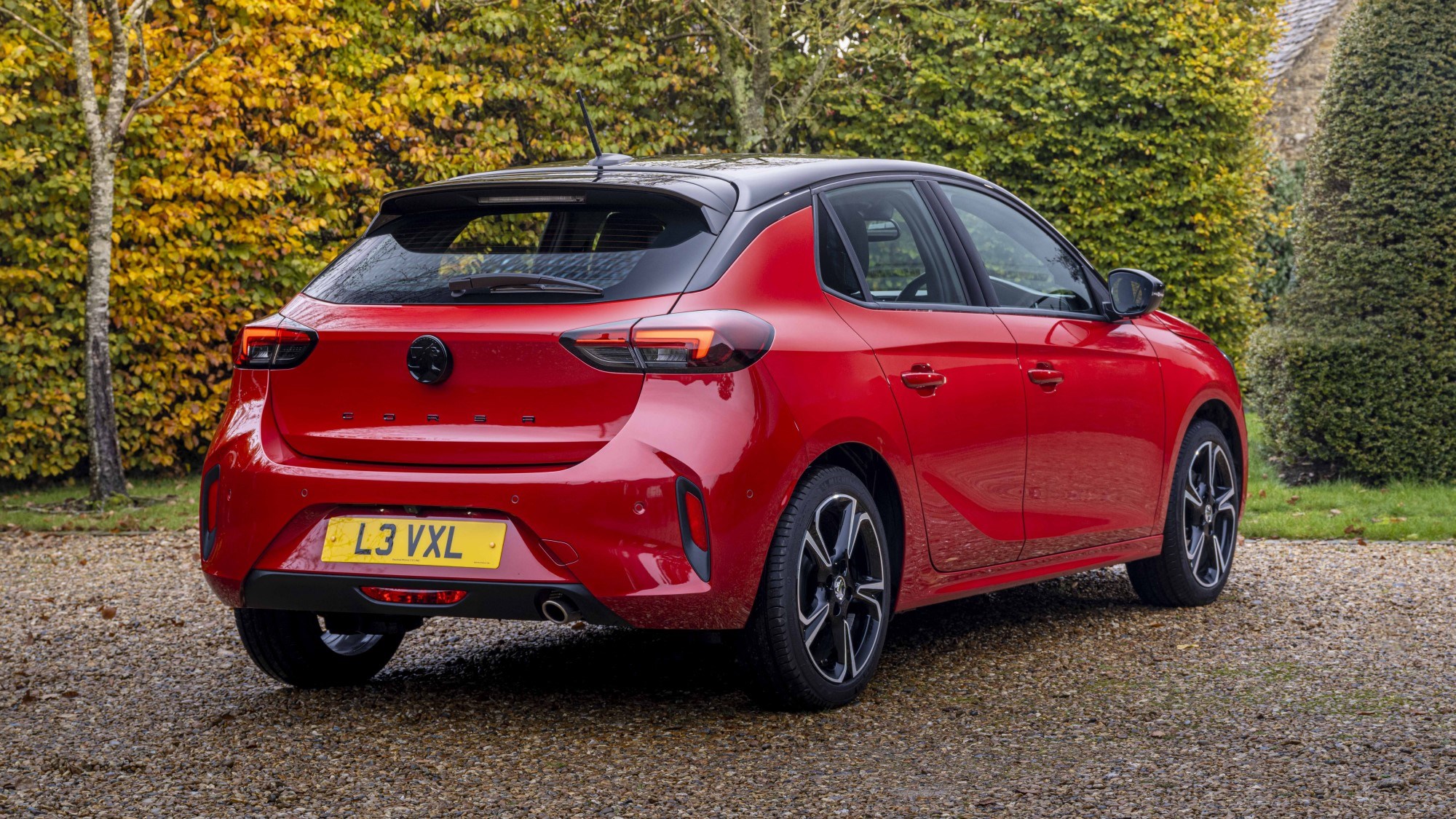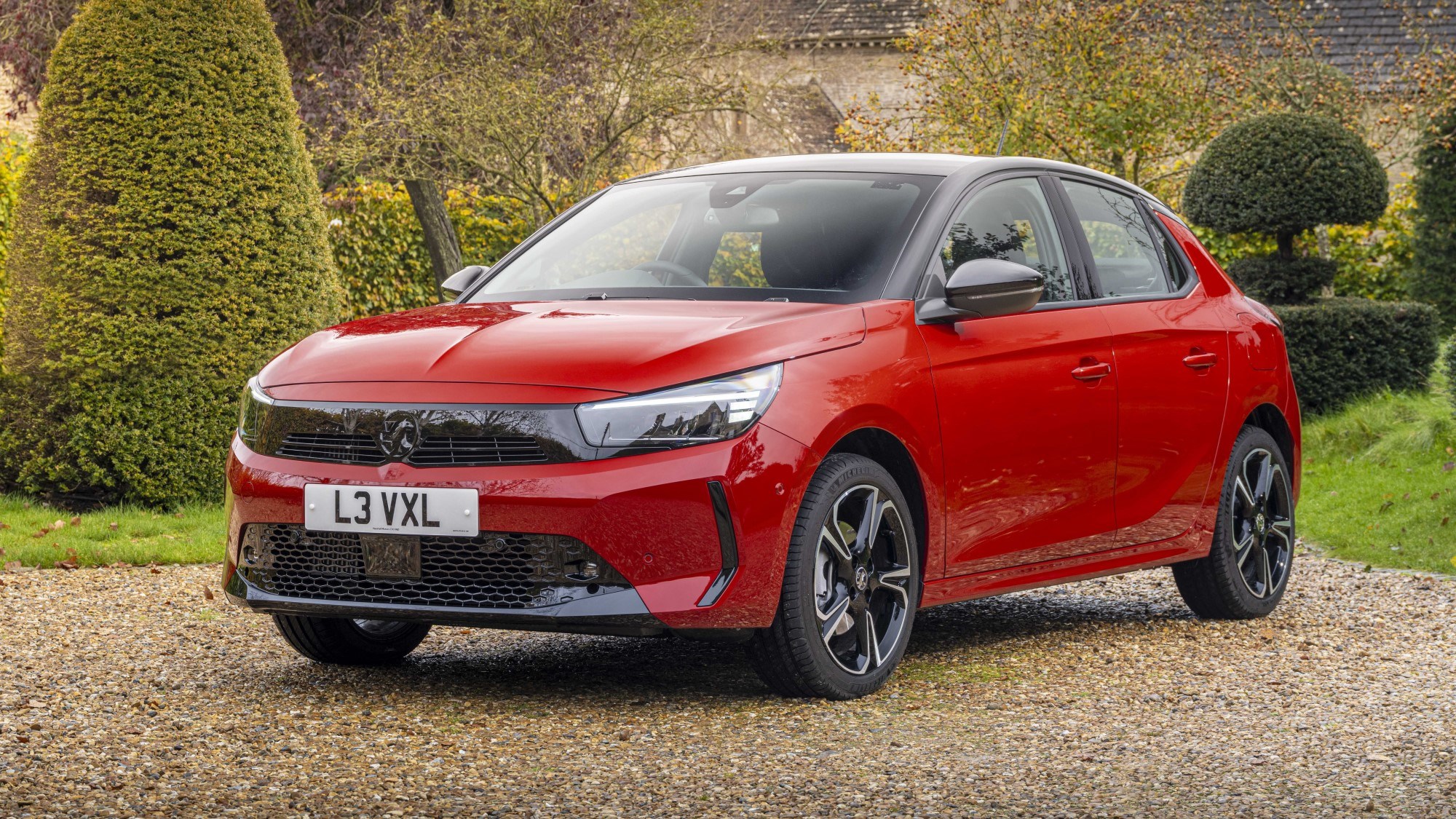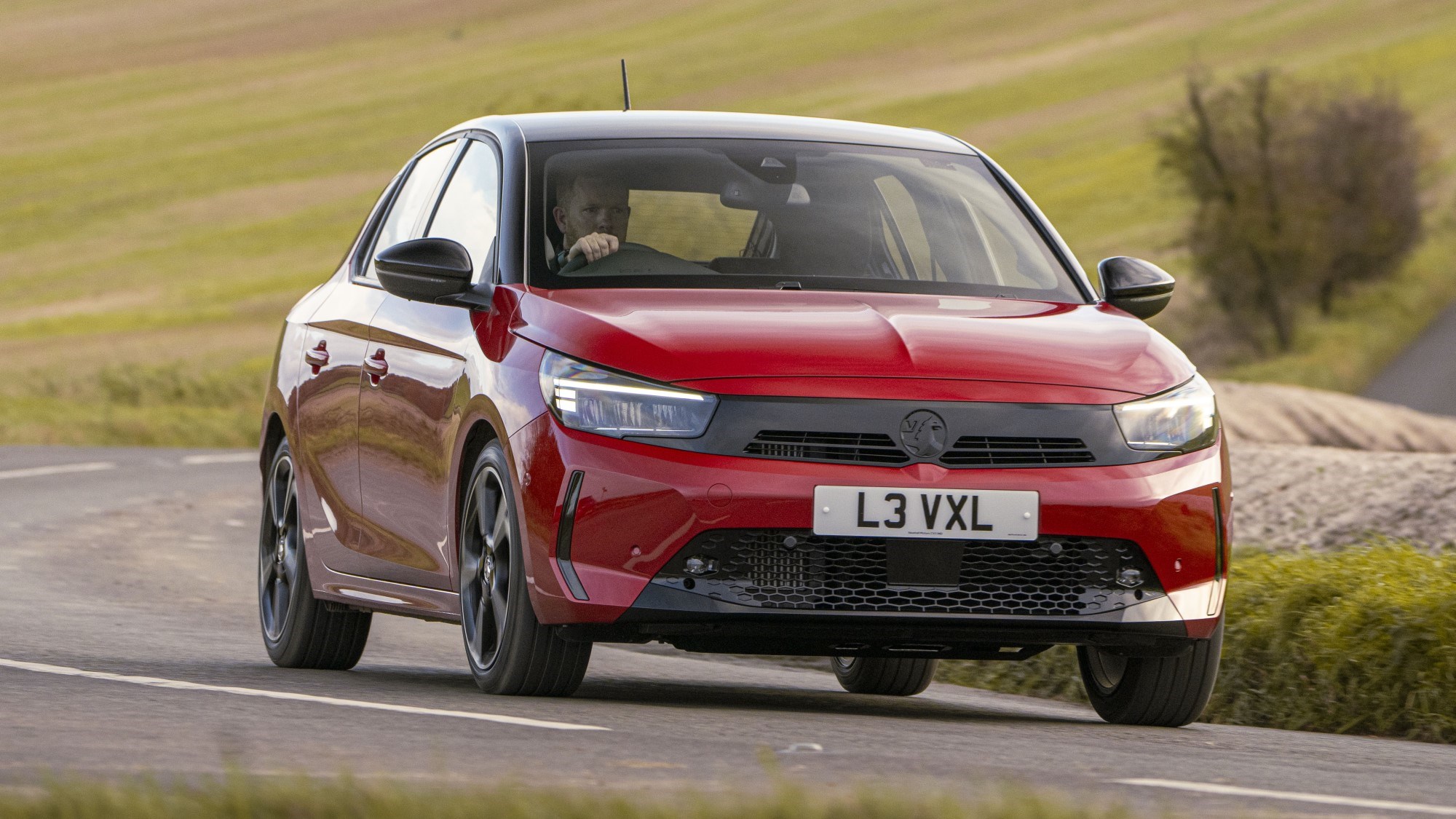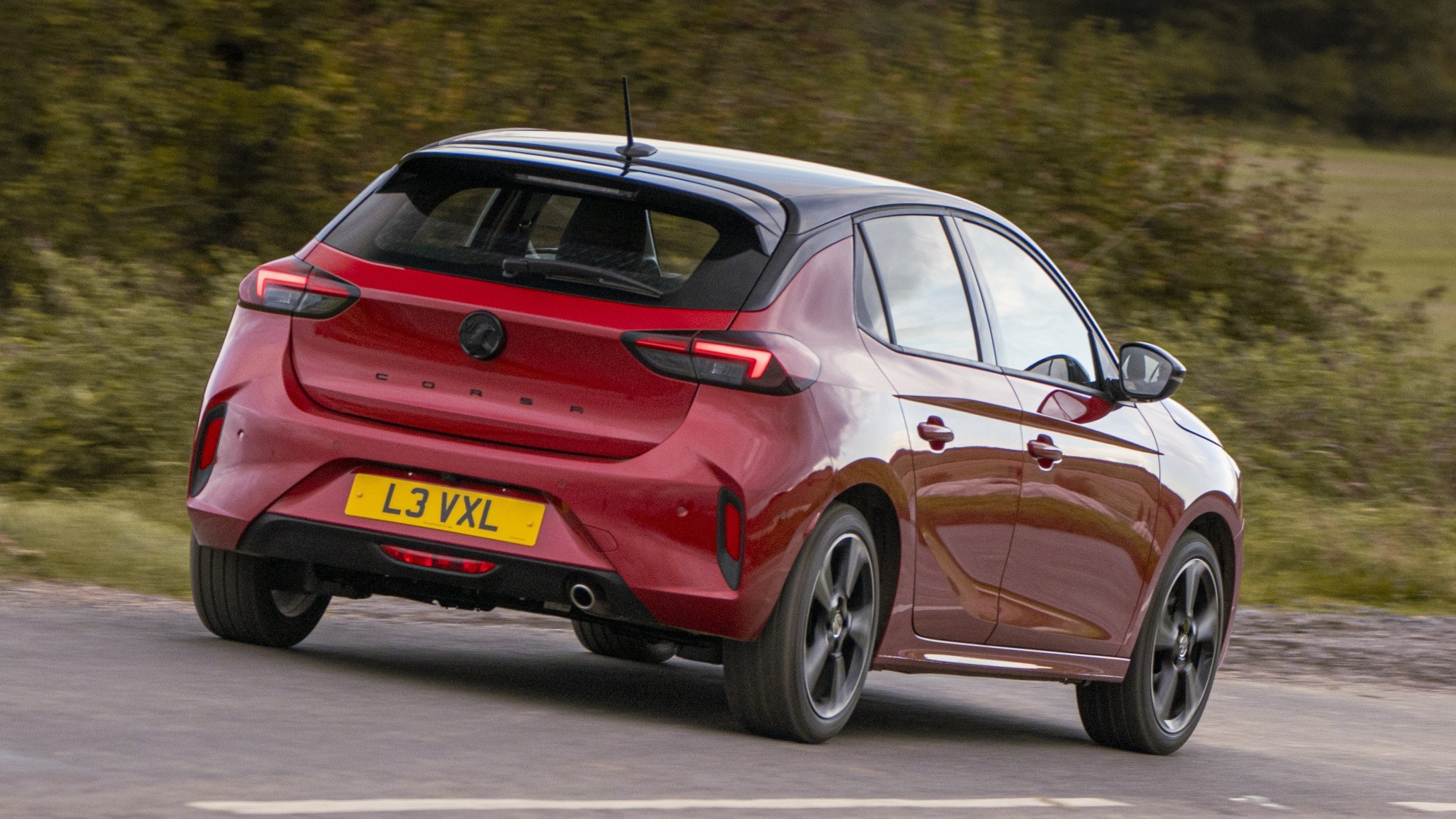► 2023 brings a facelift for the Vauxhall Corsa
► ICE engines remain unchanged
► Gains the Vauxhall Vizor front end
This review of the facelifted Vauxhall Corsa feels a bit bereft of the spice. Since the demise of the Corsa’s supermini nemesis, the fabled Ford Fiesta, it’s like watching a Tom and Jerry cartoon after Hanna-Barbera’s culled Tom and left Jerry to whack himself over the head repeatedly with a mallet. There’s not the same sense of fevered excitement, even with 2023 bringing an upgrade for the smallest Vauxhall.
Of course, there are other background characters in a Tom and Jerry cartoon, like Spike the dog, and the Corsa still has the Renault Clio, Peugeot 208, Seat Ibiza, etc. to tussle with. But it’s not the same, is it? Those don’t touch the Ford vs. Vauxhall headline fight we’ve been so used to.
Without Tom to battle, has Jerry bothered to improve?
Yes, well a bit. The interior hasn’t changed dramatically. It still feels sturdy but still a little subdued next to the plusher and snazzier 208’s cabin. And Vauxhall’s not made any mechanical upgrades to the petrol models (the Corsa Electric versions have enhancements, including a better range and faster charging) but there’s added zestiness here and there to keep the Corsa fresh.

We’re talking small trinkets, such as the redesigned steering wheel, to grander additions, including a new Qualcomm Snapdragon infotainment system with a 10.0-inch screen and over-the-air updates. There are also LED headlights across the range, and that range has been streamlined to just three trims: Design, GS and Ultimate.
Design dips as low as £19,625 and comes with rear-parking sensors, auto wipers and cruise control, but you have to make do with the previous (PSA-derived) infotainment package – so a titchy 7.0-inch screen and no over-the-air updates, but wireless smartphone mirroring is included.
GS gets you 17-inch alloys, climate control, blind-spot warning and a rear camera, plus a sportier look thanks to privacy glass, a black roof and black door mirrors. That costs from £21,655 and also lands the bigger 10.0-inch screen and that fancy new software, which, it must be said, is more responsive than the older tech in the lesser trim.
The price of the Ultimate is a bit spicy at £25,335, but its Swiss Army Knife equipment tally includes keyless entry, electric driver’s seat, adaptive cruise, and IntelliLux LED Pixel adaptive headlights.
Is it a handsome beast or an ugly duckling?

Well, a handsome beast we’d say. The Corsa’s the latest and last model in Vauxhall’s range (Combo aside) to get the black-panel ‘Vizor’ treatment across the front end. The 208-based F version Corsa that arrived in 2019 was always rather dishy, but this new front end makes it dishier still – it adds some extra definition, a bit like a beard on a chinless wonder. Are you a fan of grey paint? That’s now available, too.
Does it do lift-off oversteer like the Fiesta used to?
Err, no. However, you can trim its mid-bend attitude with a little lift of the throttle if the front end starts heading for a hedge. Overall it’s a grippy and nicely balanced supermini, and Vauxhall’s stiffer set-up (compared with the 208) is better at limiting lean and keeps more composure over undulating roads to give you confidence. That’s a tick if you prefer something sportier.
The Corsa’s steering is also changed over the 208, but that’s less good. It’s slow and a little vague over the first few degrees, then ramps up in speed suddenly thereafter. Combine those two traits and its initial lightness (GS and Ultimate trims have a sport button to add weight) and it takes some time to gel with. So for something that handles with more Fiesta-style verve, try the recently updated Renault Clio or Seat Ibiza.

Because it’s firmer, the Corsa doesn’t ride with the 208’s soft-edged panache, but it’s far from jarring. Jiggly is about as niggly as it gets, especially at low speeds, because it’s markedly more settled as you up the mph. That’s something you can do easily enough with the smooth yet thrummy 99bhp 1.2 turbo triple we tried.
Less than 100bhp? How slow is it?
Outright, it’ll do 0-62mph in 9.9 seconds and, with a welcome dose of low-end grunt, you can make decent progress even when you’re not leathering it. If you need more potency there’s the 128bhp version, which hits 62mph from rest in 8.7 seconds, but the 74bhp naturally aspirated model is likely to remain as asthmatic as it was in the outgoing model.
The 75hp engine comes with a five-speed gearbox, while the turbo versions have six speeds (and the option of an eight-speed auto for the 99bhp; that’s standard on the 128bhp). We tried the six-speed manual and the good bit is its slickness between ratios; the less good bits are a long-ish throw and very little mechanical satisfaction to speak of. So it’s not a ‘box you’ll stir for kicks and giggles that’s for sure, and it doesn’t help that the clutch biting point has the clarity of a muddy puddle and the pedals are offset to the right. That, and the lack of resistance at the top of the brake pedal, means heel and toeing isn’t easy, but if all you desire is to potter about town it’s fine.

Venture onto faster roads and you’ll hear some wind noise coming from the door mirrors and B pillars, plus some tyre noise – although it’s arguably quieter than the Clio in that respect. Suspension noise is generally well suppressed.
Vauxhall Corsa: verdict
The new Corsa isn’t vastly improved so it’s still no class leader. Instead, it remains a good all-rounder. The ride and handling balance is a good compromise, the 100hp engine proves frugal and performs well, and, for a supermini, there’s enough space inside – even if it’s still tricky getting in and out of the rear seats with those narrow rear doors.
No doubt with its sharper looks, new infotainment and new features it has added showroom appeal, but that’s tempered by higher prices that make it less of the bargain it once was.